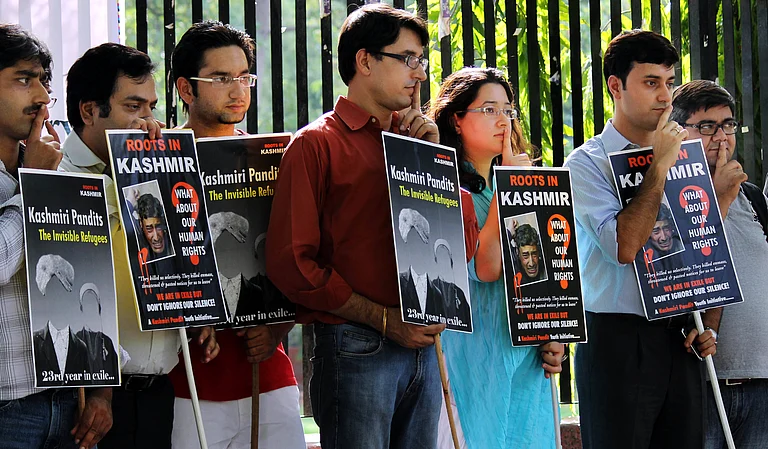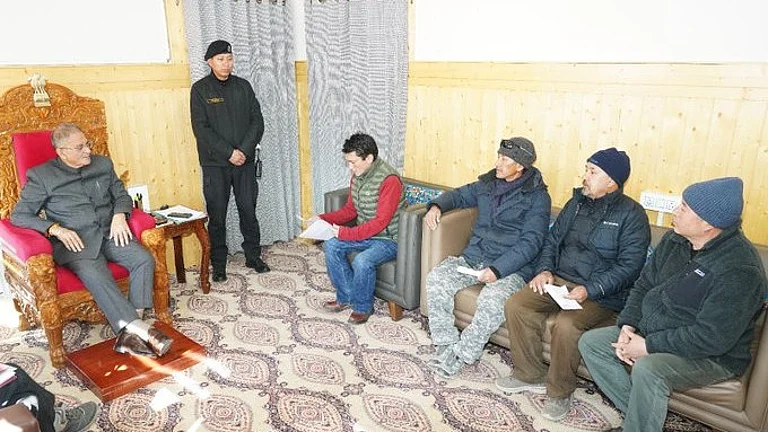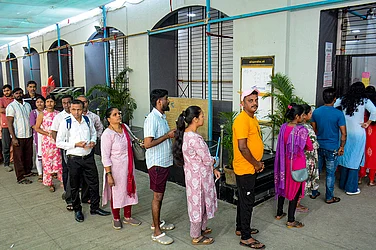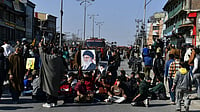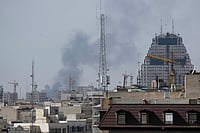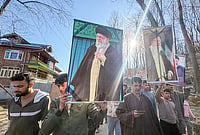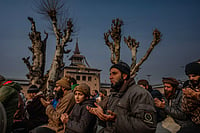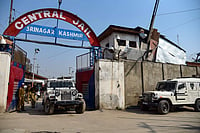New Delhi has recently issued domicile rules for the Ladakh Union Territory (UT) to protect the jobs of local people by barring those from outside from acquiring these rights until 2034.
Additionally, the two local languages, Bhoti and Purgi, have been declared official languages. Local politicians have widely hailed these measures, saying they will protect the region's identity and culture.
However, politicians and activists who have come together under the banner of Leh Apex Body(LAB) and Kargil Democratic Alliance (KDA) have also sought that UT should get statehood. They are also demanding inclusion of the region in the Sixth Schedule of the Indian Constitution so that Ladakh can make laws through autonomous bodies to restrict the sale of land to non-locals.
Several politicians have argued that Ladakh should have statehood and said that the area lacks a legal body that could make laws on the key matters, instead of Parliament doing it for the region. Political parties have said that even the Ladakh Autonomous Hill Development Council-Kargil (LAHDC) lack law-making powers, and the developmental budget of the body was also reduced.
Ladakh has also witnessed protests in the past over the demand for statehood and the Sixth Schedule, with activist Sonam Wangchuk sitting on a hunger strike last year in support of these issues. The central government has formed a high-powered committee that holds talks with the leaders of Ladakh on these issues.
Last year, Home Minister Amit Shah held a meeting with the members of LAB and KDA and assured them that the Central government is committed to providing necessary constitutional safeguards to Ladakh.
In an interview, Tashi Gyalson, chief executive councillor (CEC) of LAHDC, Leh, spoke about these issues confronting the region after the revocation of Article 370 and the creation of Ladakh as a separate Union Territory.
Q: What are your views on the recent decision of Central government to bar the domicile rights to non locals till 2034?
A: This is a good and progressive step. In 2019, Ladakh became a Union Territory and we were two small districts and the region was out of the reach of the successive governments on the developmental front. There were issues of unemployment and the people would also migrate outside Leh for jobs. Ladakh is a border area and if people would have continued to move out from here, then who would defend the place. You would need civilians to defend the place as it is a very strategic area and we can't leave everything on the security forces. Natives should get the benefits and the objective of domicile rights is to empower people. It is a welcome step.
Q: Are you hopeful that New Delhi would concede to the demand of granting statehood to Ladakh due to its small population size?
A: The dialogue on the issue is going on. The solution would come as an outcome of the dialogue. Everyone has to be rational and discussions have to be in the interest of people. Ladakh has become a UT recently and it has very less resources and both the pros and cons of the issue need to be properly examined before arriving at a decision. It has to be debated and thought about carefully.
Q: What are your views on the demand to include Ladakh in the Sixth Schedule of Indian constitution?
A: We have always said that there is a need for deep thinking that whether other models of other states can be good for the Ladakh. Ladakh is a progressive area and it is also a tourist area. Ladakh has a peculiar race and it is a minute community which could face threat of extinction. The solutions have not to be copy pasted and there should be thorough deliberations over the issue.
Q: How important is it to protect the rights of the local people on the jobs and land?
A: It is very important. Jobs are required to be protected. I have seen in the past youth go out of Ladakh due to scarcity of proper jobs here. The protections for the local youth should be there. Ladakh is a strategic area and the rights of people on the land should also be protected.
Q: Is the LAHDC fully empowered to take legal and developmental decisions with regard to Ladakh ?
A: We can make rules for the functioning of LAHDC under the law to run the council. The rules are about how to run the functioning of the LAHDC. The LAHDC can also impose limited taxes. But the scope of governance of LAHDC and that of the UT administration are entirely two different things. The LAHDC is a district set-up. Before Ladakh was converted into a UT, there were two districts. But I think some amendment has to be done in the law so that the LAHDC is strengthened and there is no overlapping of the powers.
Q: Recently activist Sonam Wangchuk went on a hunger strike in New Delhi demanding more autonomy for Ladakh. Do you think tactics like hunger strikes will make the Centre sit up?
A: The path of protest is an indvidual decision of Sonam Wangchuk. But there is no need for protests when the Central government is listening. Central government has given us the status of a UT which was our demand. Nobody asked for our wishes in 1947 and we were forced to be the part of Jammu and Kashmir in 1834. Somehow our rights and freedom were restored by the Central government in 2019. We didn’t have any identity and Centre has given solutions to our issues which are Ladakh specific.










